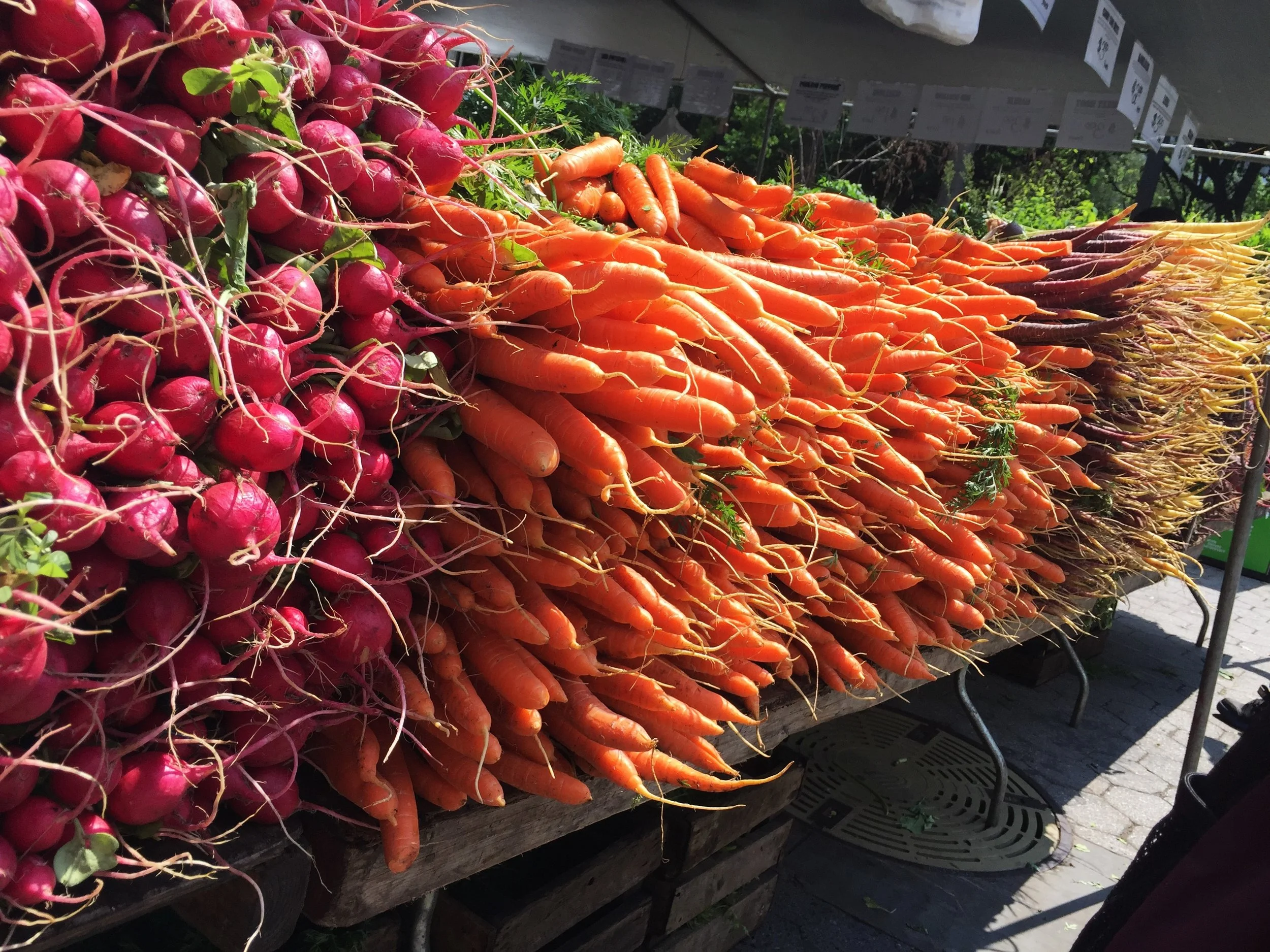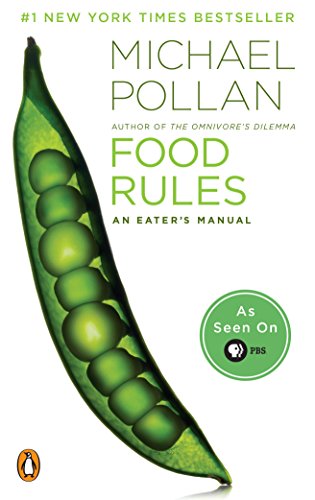Why Mostly Plants?
Lynley Jones
Why eating a seasonal, mostly plant-based diet makes a lot of sense, and how exactly to go about doing it. Here's the inspiration behind our Mostly Plants recipe series.
Return to Mostly Plants homepage
Mostly Plants?
Food journalist Michael Pollan has spent years researching and writing about the food industry - where our food comes from, the science behind what it does in our bodies, and what it all means for the health of our planet and our own health.
The thing is, eating seems awfully complicated these days...
Does fat still make us fat? Is it ok to use salt? If sugar's the new bad guy, should I be using artificial sweeteners? Is agave or maple syrup better? Do I have to buy organic everything? And what's the deal with gluten?
Eating seems complicated for two simple reasons:
1) Nutrition science is new and still evolving. The more we learn, the more it turns out we don't really understand. For example, in the 20th century we discovered vitamins and minerals, and we thought we understood that food is basically a vitamin delivery device. But in the 21st century, we are just beginning to understand that the interplay between these nutrients and all the other compounds in food, and even within our own individual digestive systems, is actually extremely complex. Eating a Vitamin C pill is not at all like, and not nearly as good for us, as eating an orange. We're just beginning to understand all the reasons why, and as the complete picture continues to reveal itself bit by bit, yesterday's advice is often contradicted by today's new study.
As Michael Pollan points out in the preface to his book Food Rules, nutrition science is actually a new field of study, less than 200 years old. He likens it to the field of surgery in the year 1650: "very promising, and very interesting to watch, but are you ready to let them operate on you? I think I'll wait awhile."
2) Keeping us confused is a money maker. Packaged food companies, drug companies, marketers, farmers, ranchers, and even your friendly neighborhood Whole Foods can all profit from our confusion.
I want to be perfectly clear: I'm not here to label any of these industries as wholly evil. Packaged foods made it possible for my disabled mom to put dinner on the table every night, and my husband currently works for a giant packaged foods company and his paycheck helps to put food on our table every day. We can keep going down that list: prescription drugs have helped me recover from serious illness. I worked in marketing for 10 years. My cousin is a pig farmer, and I'm from Arizona, one of the ranching capitals of the US. And I'm a regular Whole Foods shopper. We're all a part of this system.
However, the fact remains that when science leaves us confused, business can profit. Food labels are festooned with healthy-sounding buzz words, sound bites from the latest study are taken out of context, and animal feed is changed while farming practices remain the same. And by the time we figure out we should be eating kale, someone tells us matcha is the new thing. What's an eater to do?
In his book In Defense of Food, Michael Pollan boils it all down to a 7-word guideline:
"Eat food. Not too much. Mostly plants."
Over the many decades, while food science has evolved and new studies have contradicted old studies, these three principles remain solid. Whatever else we don't know, all the experts agree on these three points:
Eat Food means that we should eat things that our bodies were made by nature to recognize as food. Things like like leaves, roots, fruits, grains, beans and if you like, animals. Not things like Polysorbate 80 or Red 40.
Not Too Much means we should stop eating when we're pleasantly satisfied. It turns out that in traditional cultures around the world, folks are encouraged to stop eating when they are anywhere from 60%-80% full. And this makes sense, since nature doesn't usually provide us with all-you-can-eat buffets or drive-through windows. From the beginning of time, food has been scarce. It has always taken a lot of really hard work to fill bellies. So, pretend it still does.
Mostly Plants means... mostly plants! Most of what we eat should be veggies, fruits, grains, beans, nuts and seeds. The current MyPlate design gets this right - half the plate is fruits and veggies, and another fourth is grains. Food policy people love to debate the details of government dictums like this (and for good reason), but everyone agrees on the central point: mostly plants. (And if the plants are grains, whole is best.)
Embracing Seasonality
Fresh, local strawberries from my CSA.
Knowing what we're supposed to eat, and actually doing it, are two different things. It definitely requires making choices, and it may require cooking. And for many of us, it means trying new things.
One of the best ways to put all three points of Michael Pollan's advice into practice is to shop seasonally and locally. When fruits and veggies are grown locally, they are by definition seasonal. Just as nature intended. Science tells us that nutrients are usually most available to us when produce is freshly plucked from the plant. A just-picked strawberry is better for us than a strawberry picked a week ago. (And better for the planet too, if it didn't travel thousands of miles to get to us.) And if you've had a local, ripe strawberry straight from the farm or garden lately, you know it tastes infinitely better.
Seasonality also means that we embrace the fleeting availability of things. We realize that those strawberries are only available for a couple of weeks as spring is just turning to summer. Then, it's on to blueberries. Then, peaches. Then, apples.
Now, I'm definitely not the Food Police! Living in New Jersey, if I only ate locally and seasonally, I'd never again enjoy an avocado, or olive oil, or Parmigiano-Reggiano cheese. Or black pepper. I buy and use all of these things all year long, and I'm not giving them up, thank you very much.
So, make whatever choices work for your family. Shop wherever you are comfortable. And if you'd like to take advantage of the abundance of nature to eat more seasonal plants, you can follow our Mostly Plants series for recipes, shopping suggestions and tips, as well as video interviews with local farmers, and much more. It will be fun - and delicious!
Return to Mostly Plants homepage



